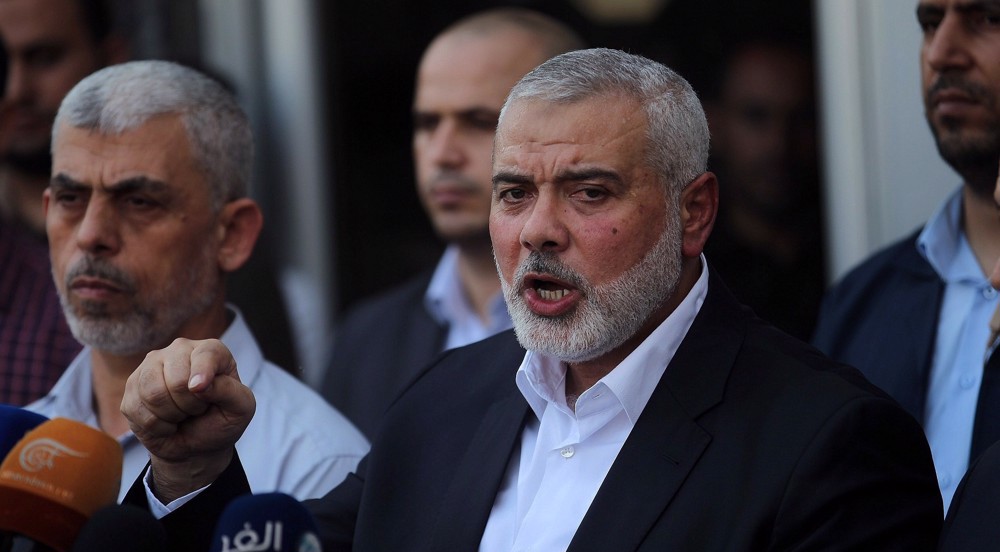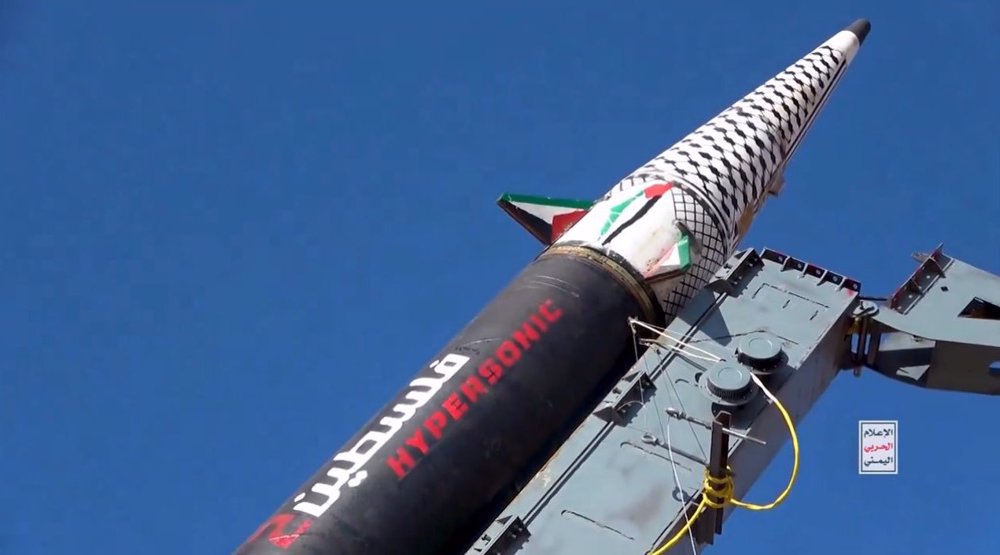Ismail Haniyeh: Unified Palestinian position thwarts Israel’s annexation plan
The Palestinian cause is going through its ‘most dangerous’ phase, says the head of the political bureau of the resistance movement Hamas, urging a unified position to thwart Israel’s much-condemned plan for annexing large parts of the occupied West Bank.
Ismail Haniyeh was at a press conference with Qatari journalists earlier this week, where he highlighted Hamas’s three priorities to deal with the situation on the ground in a bid to foil the annexation scheme, the Palestinian Information Center reported on Monday.
The top Hamas official said the first priority, or “the most important factor,” is to work on rebuilding the national project on sound foundations based on the unchangeable principles of the Palestinian cause.
“If there is a unified Palestinian position, then surely we will be able to thwart this plan and I can say that we have succeeded so far in building one Palestinian position against the annexation plan and the deal of the century.”
Haniyeh noted that this priority could be achieved through renouncing the Oslo Accords, according to which the West Bank was divided into areas under Israeli, Palestinian and joint controls.
“All Israeli crimes were carried out under the guise of Oslo (Accords), so our people must abandon the entire Oslo process and the Palestine Liberation Organization (PLO) must halt any cooperation with the Israeli occupation and revoke its recognition of Israel.”
The Oslo Accords were signed between the Israeli regime and the PLO during the early-mid 1990s to resolve the Israeli-Palestinian conflict and to guarantee the Palestinians’ right of self-determination.
The Palestinian Authority (PA), now led by President Mahmoud Abbas, has limited governance over the occupied West Bank. It was established following the Oslo Accords.
US President Donald Trump gave Tel Aviv the green light to annex large parts of the West Bank and Jordan Valley in his self-proclaimed “deal of the century,” which was unveiled in January with the aim of legitimizing Israel’s occupation and re-drawing the Middle East map.
Although the highly-provocative plan drew global condemnation, Israeli Prime Minister Benjamin Netanyahu says he is determined to carry on with it.
The top Hamas official said the second priority would be about all the means and mechanisms to confront Israel’s annexation and how to execute them.
Hamas, he added, is ready to sit at a single table with other Palestinian parties and factions to agree on how to carry out the national fight against Israel.
The third priority, Haniyeh said, is about arranging the relationship with the Arab and Islamic world. “It is related to organizing the relationship with our Arab and Islamic roots, and this is an important topic for two reasons: First because the [Palestinian] cause has an Arab and Islamic dimension and the second, such plans have repercussions for the entire region.”
“We, in Hamas, believe that the strategy of being open to everyone and relying on a strong bloc in the region is successful, so when we talk about the necessity of coordinating with Qatar, Turkey, Jordan, Iran and other countries, we are in this direction.”
Netanyahu had frequently announced that he would definitely begin cabinet-level discussions for the annexation on July 1, in accordance with Trump’s plan.
Nevertheless, his much-publicized land grab plan, without clarifications, failed the set date amid widening differences within the Israeli ruling coalition and against the backdrop of massive international opposition to the highly provocative attempt.
The crest-fallen Israeli premier, who had publicly voiced full-throated support of Trump’s plan, said earlier this month that he would continue discussions with Washington over the scheme “in the coming days.”
Experts believe there is evidence surfacing that Netanyahu's desired roadmap for annexing more Palestinian lands is at odds with the plan articulated by Trump.
Trump’s plan largely gives in to Israel’s demands while carving out a Palestinian state with limited control over its own security and borders, enshrining the occupied Jerusalem al-Quds as Israel’s “capital.”
Turkey will bury Syria’s Kurdish militia if they fail to disarm: Erdogan
VIDEO | Christmas in Syria: Hope amidst uncertainty
Israel attacks eastern Lebanon for first time since ceasefire
‘Christ under rubble’: Christians in Gaza mark another Christmas amid genocide
Iran’s president extends condolences to Azerbaijan’s Aliyev over plane crash
VIDEO | Press TV's news headlines
Iran says Christmas opportunity to remind ourselves of Jesus Christ call for 'justice, peace'
VIDEO | Eyewitness video shows moment of plane crash in Kazakhstan














 This makes it easy to access the Press TV website
This makes it easy to access the Press TV website